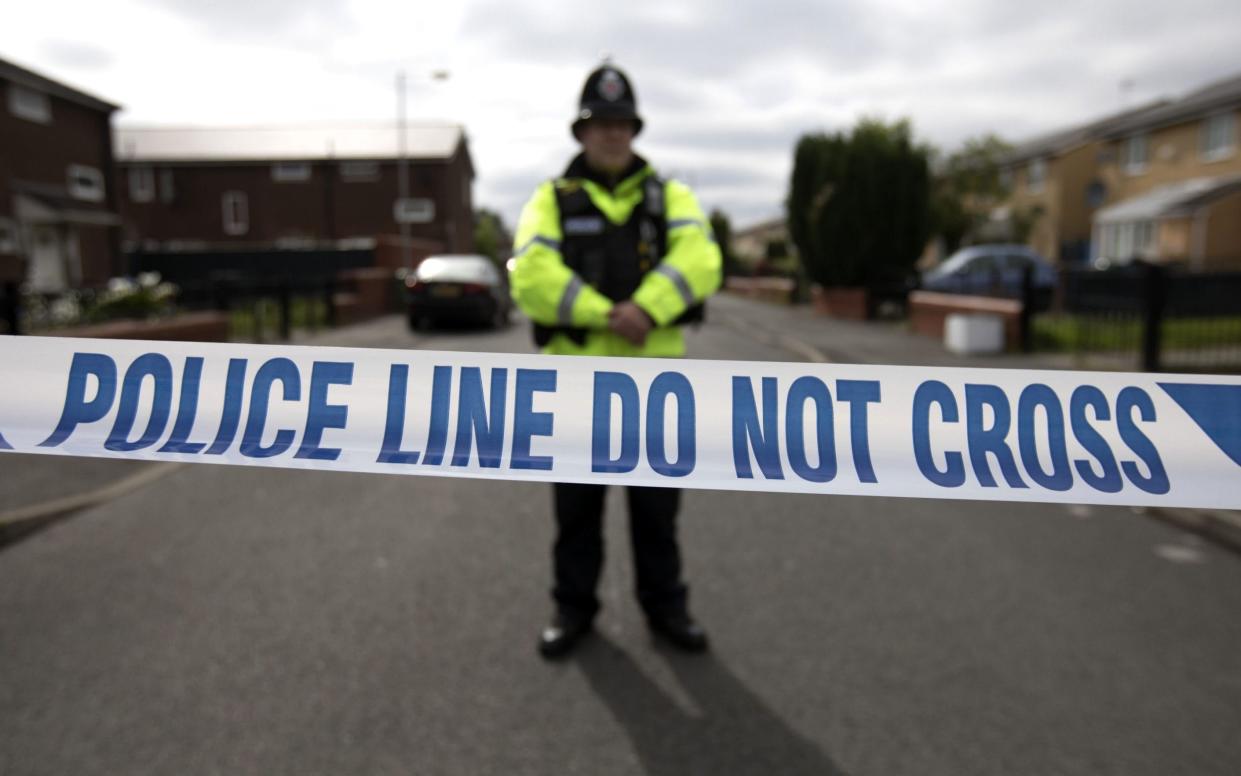Police solving lowest proportion of crimes ever, even as number of sex offences soars

Police are solving the lowest proportion of crimes on record as sex offences hit a new high, official figures show.
Just six per cent of all crimes resulted in a charge in the year to September 2021, equivalent to only one in 17 offences being solved, according to Home Office figures published on Thursday.
That represents a fall from 7.3 per cent in the previous year and is just half the charging rate of 15.5 per cent six years ago, when records began.
At the same time, the number of sex offences in a single year has risen to 170,973, the highest on record.
It represents an increase of 12 per cent on 2020 and is attributed to more victims coming forward after high-profile crimes such as the murder and rape of Sarah Everard.
Rape - which comprised 37 per cent of all sex crimes - was also at a historic high for a single year with 63,136 offences, according to Office for National Statistics (ONS) data also published on Thursday.
Rapes resulting in charge at all-time low
Yet, the proportion of rapes resulting in a charge has fallen to a historic low with just 1.3 per cent - equivalent to one in 77 offences - being solved. That was a fraction of the rate of 8.5 per cent in 2014-15.
Jo Sidhu, chairman of the Criminal Bar Association, said victims would be shocked by the collapse in charges. “These record low charging rates for serious allegations of crime will undermine public faith in a criminal justice system that is teetering on the brink,” he said.
David Wilson, professor of criminology at Birmingham University, blamed the fall on police forces having lost a tier of experienced officers and detectives who could extract intelligence from their communities and solve crimes.
He warned: “My biggest anxiety is that when communities think about how they make themselves safer, they will increasingly look to have a form of vigilante justice, whether you like that phrase or not. These are really depressing figures.”
Dame Vera Baird, the victims’ commissioner, said it was of “grave concern” and “depressing” that rape and sexual assault charging rates were so low as to be “barely discernible.”
Women’s groups blame court delays which mean victims can wait two or more years for justice, intrusive questioning into their private lives by police and prosecutors, and the trauma of reliving the rape attack in a court in the presence of the alleged attacker.
Dame Vera said these factors had contributed to a record 41 per cent of rape victims withdrawing their support for prosecutions. “We are once again faced with the crushing reality that the criminal justice system is continuing to fail rape victims in ever-increasing numbers,” said Dame Vera.
“For so many victims to have built up the immense courage to report only to withdraw within a matter of weeks is deeply worrying and suggests the situation is worsening.”
Just 2.9 per cent of sexual offences resulted in a charge in the year to September 2021, down from 11.3 per cent six years ago.
The sharp rise in the number of sexual offences and domestic abuse cases has contributed to the overall decline in charging rates as they are more difficult to secure a conviction, say policing experts.
Domestic abuse was up by five per cent to 872,911, including nearly 695,000 offences of violence flagged as domestic abuse.
But cuts in policing and prosecutors in the past decade means other crimes have not escaped. Only one in 20 (5.4 per cent) of violent crimes against the person resulted in a charge in the year to September 2021, down from 22 per cent in 2014/15, according to the Home Office data.
One in nine theft offences (10.8 per cent) resulted in a charge in 2014/15 but had fallen to 4.3 per cent, below one in 20, last year. Theft offences from vehicles or personal theft were even lower, at 1.3 per cent or one in 77 crimes.
Yvette Cooper, the shadow home secretary, said: “These damning figures show the Conservatives have no grip on law and order with more criminals being let off, more victims being let down, and a shameful failure to tackle violence against women and girls.”
‘Government continues to cut crime’
However, Priti Patel, the Home Secretary, pointed to ONS figures that showed knife offences down by 10 per cent, burglaries having fallen by 19 per cent and firearms crimes down by nine per cent - some of which could be accounted for by lockdowns and restrictions on gatherings and travel.
“The Government continues to cut crime,” she said. “We have toughened our laws to give the police the powers they need to pursue those who cause misery and harm through crime and to ensure that sentences reflect the serious nature of crimes committed.”
Although most crimes fell partly due to lockdowns and restrictions on travel and restrictions in the year to September 2021, online crimes rose sharply. Fraud was up by 36 per cent to 5.1 million offences and computer misuse up by 89 per cent to 1.87 million crimes driven by a 161 per cent rise in hacking.
While murders were down by one per cent to 666, the proportion involving killing with a knife was up from 256 to 276 offences.
A spokesman for the National Police Chiefs Council said: "There is still much work to do in improving criminal justice outcomes for all victims– this work has already begun and will continue at pace. Our priority is to ensure that victims and those who are most vulnerable have the confidence to report crimes, safe in the knowledge that they will be fully investigated and that they will receive appropriate support and outcome."

